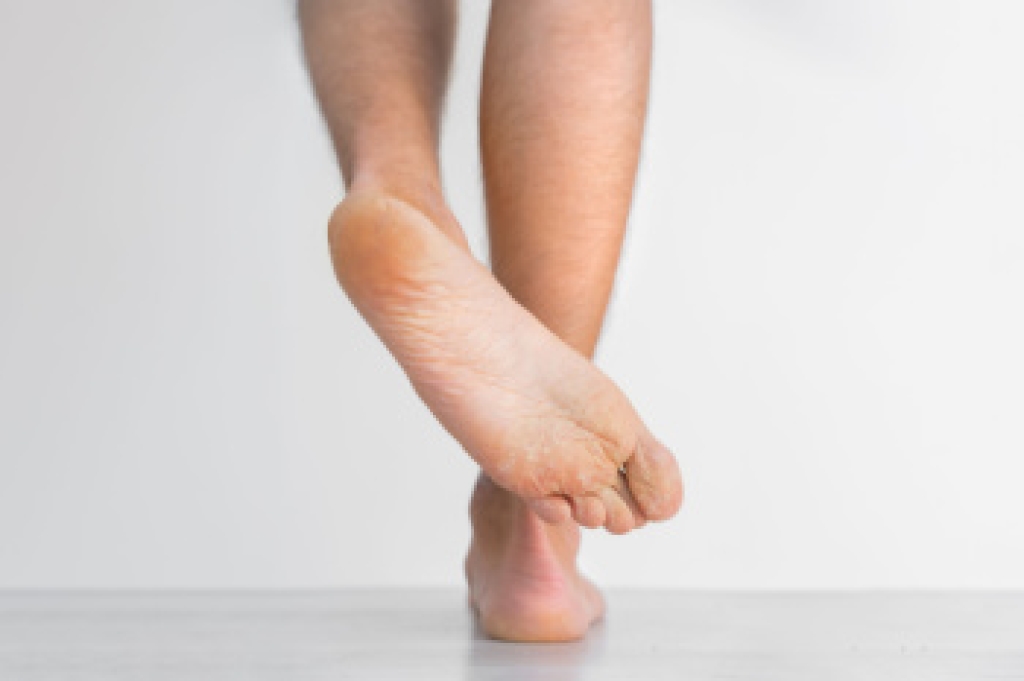 Athlete's foot, a fungal infection that affects the skin on the feet, is especially common among people who frequent damp, warm areas where the fungus thrives. These often include public showers, locker rooms, and swimming pools. The infection spreads easily through direct contact with contaminated surfaces. Wearing tight-fitting, closed-toe shoes can increase the risk, as the warm, moist environment is ideal for fungal growth. People who sweat excessively may be more prone to the infection due to increased moisture levels. Sharing towels, shoes, or socks with someone who has athlete's foot can also transmit the fungus. To reduce the risk of contracting athlete's foot, wearing moisture-wicking socks, using antifungal powders or sprays, and maintaining dry feet are often suggested. Regular foot hygiene and avoiding direct contact with potentially contaminated surfaces are also key preventive measures. If you suspect you have athlete’s foot, it is suggested that you make an appointment with a podiatrist for a diagnosis and care.
Athlete's foot, a fungal infection that affects the skin on the feet, is especially common among people who frequent damp, warm areas where the fungus thrives. These often include public showers, locker rooms, and swimming pools. The infection spreads easily through direct contact with contaminated surfaces. Wearing tight-fitting, closed-toe shoes can increase the risk, as the warm, moist environment is ideal for fungal growth. People who sweat excessively may be more prone to the infection due to increased moisture levels. Sharing towels, shoes, or socks with someone who has athlete's foot can also transmit the fungus. To reduce the risk of contracting athlete's foot, wearing moisture-wicking socks, using antifungal powders or sprays, and maintaining dry feet are often suggested. Regular foot hygiene and avoiding direct contact with potentially contaminated surfaces are also key preventive measures. If you suspect you have athlete’s foot, it is suggested that you make an appointment with a podiatrist for a diagnosis and care.
Athlete’s foot is an inconvenient condition that can be easily reduced with the proper treatment. If you have any concerns about your feet and ankles, contact Jason Bell, DPM from Advantage Foot and Ankle Center . Our doctor will treat your foot and ankle needs.
Athlete’s Foot: The Sole Story
Athlete's foot, also known as tinea pedis, can be an extremely contagious foot infection. It is commonly contracted in public changing areas and bathrooms, dormitory style living quarters, around locker rooms and public swimming pools, or anywhere your feet often come into contact with other people.
Solutions to Combat Athlete’s Foot
- Hydrate your feet by using lotion
- Exfoliate
- Buff off nails
- Use of anti-fungal products
- Examine your feet and visit your doctor if any suspicious blisters or cuts develop
Athlete’s foot can cause many irritating symptoms such as dry and flaking skin, itching, and redness. Some more severe symptoms can include bleeding and cracked skin, intense itching and burning, and even pain when walking. In the worst cases, Athlete’s foot can cause blistering as well. Speak to your podiatrist for a better understanding of the different causes of Athlete’s foot, as well as help in determining which treatment options are best for you.
If you have any questions please feel free to contact our office located in Newark, DE . We offer the newest diagnostic and treatment technologies for all your foot and ankle needs.
